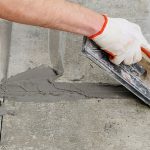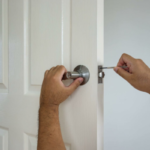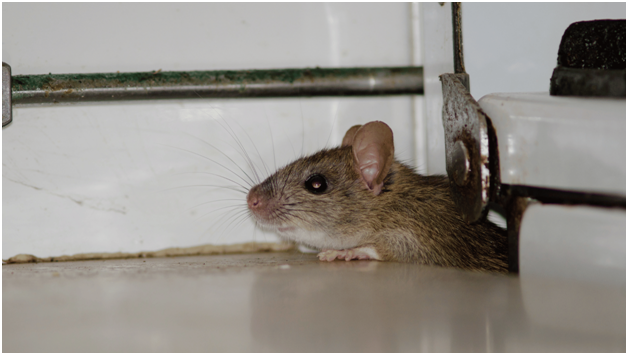Rodents, including mice and rats, are among the most common pests that can invade homes. They can pose serious health risks and cause significant damage to your property if left unchecked. Recognizing the signs of a rodent problem early on can help you take prompt action to mitigate the issue. Here are five signs that your home may have a rodent infestation.
1. Droppings
One of the most obvious signs of a rodent problem is the presence of droppings. Rodent droppings are typically small, dark pellets that vary in size depending on the type of rodent. Mouse droppings are about 1/8 to 1/4 inch long, while rat droppings can be up to 1/2 inch long and are often blunt at one end.
You may find droppings in areas where rodents are active, such as near food sources, in cabinets, or along walls. If you notice an accumulation of droppings, it’s a strong indication that you have a rodent problem and need to take action.
2. Gnaw Marks
Rodents have constantly growing teeth, which means they need to gnaw on various materials to keep them from becoming too long. If you see gnaw marks on wood, plastic, or even electrical wiring, it’s a clear sign that rodents are in your home.
Inspect your pantry for gnaw marks on food packaging, especially on cardboard boxes. Additionally, look for signs of gnawing around baseboards, door frames, and furniture. If you observe these marks, it’s crucial to act quickly, as gnawing can lead to more extensive damage over time.
3. Nesting Materials
Rodents are known to create nests for shelter and breeding purposes. If you discover shredded paper, fabric, insulation, or grass in hidden corners of your home, it may be a sign that rodents are using these materials to build nests.
Common nesting areas include attics, basements, and behind appliances. If you notice a collection of nesting materials, it’s an indicator that rodents have taken up residence in your home. Regularly check these areas for any signs of activity and remove potential nesting materials to discourage them from settling in.
4. Noises at Night
Rodents are primarily nocturnal creatures, meaning they are most active during the night. If you hear scratching, scurrying, or squeaking noises coming from the walls, ceilings, or floors while trying to sleep, it may be a sign that rodents are present.
These sounds can be particularly noticeable in quiet homes or during the late evening hours. Pay attention to any unusual noises, especially if they seem to be coming from areas where you have already noticed signs of rodent activity. If you find that these noises persist, it’s essential to investigate further and consider professional assistance.
5. Pet Behavior Changes
Pets often have a keen sense of their environment, and changes in their behavior can signal a rodent problem. If your dog or cat starts to act unusually attentive or agitated in specific areas of your home, they may have detected the presence of rodents.
Dogs may bark or whine at walls, while cats might become fixated on certain spots or spend a lot of time sniffing around. If you notice this kind of behavior from your pets, it’s worth investigating those areas for any signs of rodent activity.
Taking Action
If you identify any of these signs in your home, it’s crucial to take action promptly. Rodent infestations can escalate quickly, leading to health risks and property damage. While DIY methods may offer temporary relief, they often fail to address the root of the problem, allowing rodents to return.
Consider choosing professional pest control services for a comprehensive assessment and effective treatment. These experts have the knowledge, tools, and experience to identify the extent of the infestation, eliminate rodents, and prevent future occurrences. They can also provide advice on how to rodent-proof your home, ensuring that your living space remains safe and comfortable.
In conclusion, being vigilant about the signs of a rodent problem can help you maintain a pest-free home. Regularly inspect your living space, and if you suspect a rodent infestation, don’t hesitate to seek professional help. Protect your home and your health by addressing rodent issues swiftly and effectively.


 How to Get Rid of Musty Odours in Your Basement
How to Get Rid of Musty Odours in Your Basement  Roofing Repair in Harrisburg: Protecting Homes Through Quality and Care
Roofing Repair in Harrisburg: Protecting Homes Through Quality and Care  Restoring Strength and Safety with Expert Concrete Repair in Marion
Restoring Strength and Safety with Expert Concrete Repair in Marion  Locked Out? How Total Security Locksmith Handles Emergency Lockout and House Lock Services with Ease
Locked Out? How Total Security Locksmith Handles Emergency Lockout and House Lock Services with Ease  How Takara Standard Kitchens in Singapore Evolve With Every Milestone
How Takara Standard Kitchens in Singapore Evolve With Every Milestone  The Hidden Benefits of Serviced Apartments for Rent in Singapore
The Hidden Benefits of Serviced Apartments for Rent in Singapore  Top 5 Benefits of Installing Roller Blinds in Singapore Homes
Top 5 Benefits of Installing Roller Blinds in Singapore Homes  DIY Log Cabin Christmas Decorations on a Budget
DIY Log Cabin Christmas Decorations on a Budget  Why Homeowners Choose LUKA Design and Build for Timeless Architecture and Modern Function
Why Homeowners Choose LUKA Design and Build for Timeless Architecture and Modern Function 






